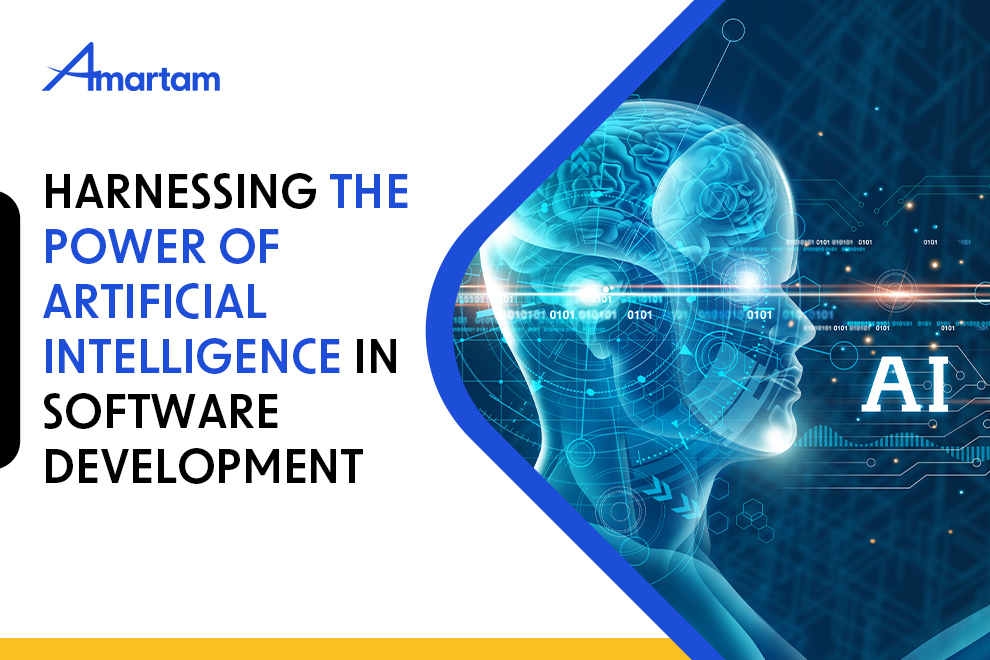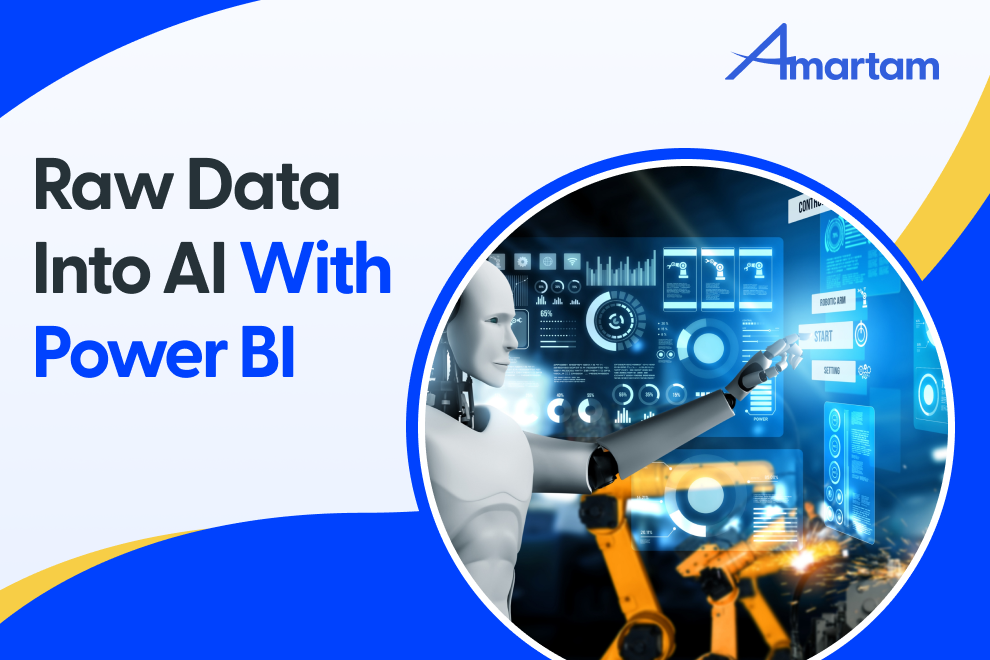
Introduction
AI is now essential to software development, changing how systems are designed, built, and tested. AI’s ability to automate difficult procedures, enhance accuracy, and speed up development is boosting productivity. AI-powered tools and methods are replacing manual coding in the tech industry. This transformation is transforming industry operations and redefining software engineer skills. AI, like any new technology, has drawbacks and ethical issues that must be considered before use. We will discuss the positive aspects of AI software development services, from its extensive impact on our daily lives and the future it is shaping to its transformative effects on many businesses, including the IT industry. By increasing data analysis, automation, and decision-making, AI and ML are transforming enterprises. We create and maintain AI and ML systems to perform jobs humans cannot or which take too long. Software engineers increasingly use AI and ML tools and solutions. This blog will examine how AI is affecting IT companies’ daily operations and how they employ it.
Definition of AI.
Imitating human intelligence with a machine or computer software is artificial intelligence (AI). In expert systems, natural language processing, recognition of speech, and machine vision, AI is used.
Machine learning (ML) of artificial intelligence lets computers “learn” from experience and make decisions.
Spellers and grammar checkers use ML to evaluate text using a lexicon and grammatical rules and flag errors. ML is used in Amazon Alexa, which learns human voice patterns and improves with time.
Software Development Opportunities Driven by AI
Artificial intelligence algorithms improve project planning, quality assurance, and user experience. Recent research found that AI-enabled software development services increased developer productivity by 10. AI’s self-improvement personality makes it excellent for program creation and maintenance. AI advances have greatly impacted software development. Automation, optimization, and streamlining development cycle management are AI’s main innovations in software development. AI has transformed code writing, debugging, and quality assurance testing with its powerful machine learning techniques. Automatic coding is a major AI contribution to software development. Kite and DeepCode examine code patterns using machine learning. Developers can write code more efficiently and precisely with these tools. Smart code completions eliminate errors and boost productivity.
Debugging and fault detection have also improved with AI. SapFix, an AI-hybrid tool from Facebook, automatically repairs flaws. This novel method cuts manual debugging time and effort, letting engineers focus on more important tasks.
AI is changing quality assurance and testing as well as coding and debugging. Testim and Appvance automate testing, improve test cases, and identify bug locations using AI’s predictive and learning capabilities. This thorough quality assurance ensures sturdy, high-quality software.
AI gives software developers cutting-edge tools and methods to save manual work, speed up processes, and improve product quality. However, AI technology’s integration challenges must be addressed to effectively alter software development services.
Some Ways AI Improves Development and Implementation are Listed Below.
Natural Language Processing For Help Automation:
AI and machine learning’s natural language processing (NLP) subset helps programs understand natural language communication. Customer experiences are more human-like with chatbots using established service channels. Data analytics lets support bots learn from the growing base of consumer service data delivered into these platforms.
Rising of Generative AI:
Software engineers have used AI and ML for years, but generative AI is new. With ChatGPT and Bard-intelligence software, users can request writing on any topic utilizing the platform’s generative AI. Developers also value APIs and generative AI for code writing and speeding up development.
Programming Interfaces and AI Generative Skills:
The concept of APIs, or application programming interfaces, predates the invention of the personal computer. They make it easier to communicate across platforms by facilitating the flow of data and services between different applications. The development of specialized applications was hastened by the change from monolithic to micro-service design, which was made possible by the introduction of APIs. The application programming interfaces (APIs) of generative AI software tools allow developers to increase the efficiency and scalability of their goods. Applying generative AI to this framework is an obvious next step for developers looking to improve the performance and scalability of their apps.
Designing Software:
Software design requires education and experience to provide a trustworthy solution. AI solutions like AIDA (Artificial Intelligence Design Assistant) help designers learn about clients’ needs and produce products that meet them. AIDA, best website development software, evaluates software design iterations to deliver a user-specific solution.
Generating Code Automatically:
Automatic Code Generation saves time and money by writing code ahead of time. Natural language processing and artificial intelligence techniques can reduce the amount of coding required. Through the process of concept translation from plain language into code, artificial intelligence in the development of software has the ability to alter the narrative.
Testing Enabled by AI:
Automated testing using ML/DL can cut down on testing time while increasing coverage of potential outcomes. Due to the high error rate in human quality assurance techniques, AI is used extensively in quality assurance. If programmers want to automate boring jobs and save time, they should apply artificial intelligence (AI). Artificial intelligence (AI) can also improve coding by making it more simple and efficient.
Making Smart Decisions and Managing Your Time Efficiently:
AI has the ability to make judgments, develop timetables and cost estimates, and even provide programmers with suggestions on how to improve software rollouts. Half of all businesses have started formulating AI strategy, while an estimated 80% are investing in AI. Another area where AI becomes effective is sentiment analysis. It helps developers understand user comments better and implement modifications that are more likely to be positive. The scope of improvements can be extracted from each piece of consumer input using natural language processing, and the optimal time and place to distribute the product can be determined using machine learning techniques.
Controlling Deployment:
Use of AI technologies has improved software deployment by increasing efficiency and decreasing failure likelihood. When it comes to upgrades, artificial intelligence (AI) can shield engineers from potential vulnerabilities and reduce the chances of deployment failure. It also makes it possible to analyze the deployment process using machine learning methods.
Error Elimination:
Reducing costly maintenance, artificial intelligence can help with error evaluation and therapy without human engagement. Artificial intelligence has the ability to learn from its mistakes and prevent them from happening again through reinforcement learning. In order to avoid making the same mistakes again, the data is retrained.
Implications for The Future
In the years to come, artificial intelligence (AI) will certainly play an increasingly important part in web software development company, bringing about massive changes to the way industries work. The use of artificial intelligence (AI) to generate code automatically is anticipated to become more commonplace; systems like GitHub’s Copilot, which automates code suggestions to streamline coding tasks like code completion, have demonstrated promising results in this area. With the use of machine learning algorithms, AI will also play an important part in quality assurance and testing. These fields aim to streamline testing processes while lowering human errors by recognizing potential bugs or faults in software.
AI has the potential to completely transform software optimization and maintenance. With the help of AI systems, programmers may be able to foresee when their software might malfunction or need upgrades, fixing problems before they happen and making the program last longer and work better.
On the other hand, there may be downsides to these innovations. The use of AI tools with the ability to learn and adapt on their own raises serious ethical questions, and the automation of more software development jobs has the potential to shake up the labor market. Harnessing AI effectively would necessitate meticulous planning, especially with respect to ethics, and a commitment to ongoing learning and adaptation, despite the fact that AI shows tremendous potential for best website development software.
Conclusion
AI’s potential in web software development company is both a promising new direction and a formidable obstacle. The profession is undergoing a transformation due to AI’s capacity to automate code development, speed testing, and improve maintenance. However, we must not neglect the ethical concerns and potential employment market upheavals that this technological leap may bring. This means that going forward, we need to make decisions based on ethical responsibility and be open to learning and adapting. Only then can we make sure that AI improves software development as intended while also safeguarding the best interests of industry workers and everyone else involved.

